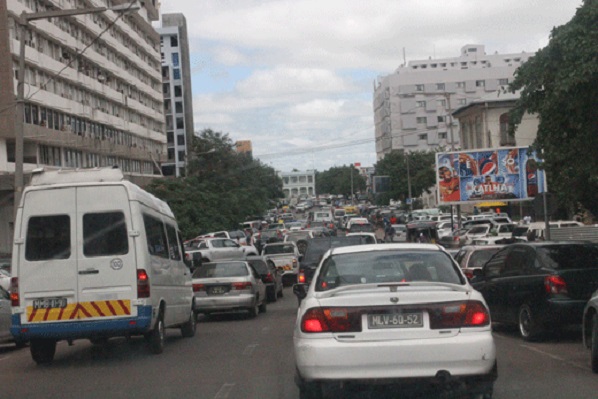Mozambique: World Bank approves $131 million for electricity projects
Mozambique to replace high-sulphur diesel

Noticias
Mozambique expects to replace the consumption of diesel with 500 to 50ppm (part per million) of sulphur by 2020, under the penalty of receiving a more expensive invoice for the import of the oil derivative, widely used in vehicles and machinery.
To this end, the city of Maputo has since Monday been the location of a two-day seminar with the motto, ‘Promotion of low sulphur content in fuels in Mozambique and neighbouring countries’, and which brings together public institutions and companies responsible for the fuel sector in the region.
The meeting, co-organised by the Ministry of Mineral Resources and Energy (MIREME) and the United Nations Environment Organisation (UNEP), aims to harmonise fuel specifications and reduce high sulphur content fuel in SADC countries, sulphur being one of the main environmental pollutants and a cause of lung cancer and respiratory diseases.
The national director of hydrocarbons and fuels, Moisés Paulino, said that the governments of countries in the region intend to implement a program to reduce the sulphur content in fuels, with a particular focus on diesel, where levels of 500ppm is increasingly falling in the refining market.
The big producers and refineries will soon stop producing 500ppm diesel and in some cases eliminate it, making only diesel with 50 to 10ppm, in recognition of the growing need to take public health into consideration and preserve the environment at the global level, Paulino said,.
Due to its geo-strategic positioning, Mozambique has the infrastructure which supplies fuels to the countries of the region (Malawi, Swaziland, Zambia and Zimbabwe and a part of South Africa), as it receives fuel via ocean ports and then distributes it to SADC member countries.
“We are preparing to ensure that any vehicle entering the country will function normally,” said Paulino, pointing out that the same happened in 2005, when the country stopped using leaded gasoline in favour of the unleaded variety.
At the Maputo seminar, countries plan to ensure that in the next two to five years the existing infrastructure is ready to receive the fuel with 50 to 10ppm, with a view to protecting the environment and ensuring longer vehicle life.
The Maputo meeting was preceded by a similar event held in July in Johannesburg. South African promoted by UNEP and attended by delegates from 13 SADC countries including Mozambique. There, importing countries renewed their commitment to adopt, by January of next year, the implementation of a program to lower sulphur fuel consumption from the current 500 to 50ppm.
However, at a Botswana seminar on the same subject, states made a commitment to work towards the migration of diesel from 500 ppm to 50 ppm by 2020, with each country designing its own communication, dissemination and implementation strategies.
According to UNEP, eight African countries have already migrated to the 50ppm fuel. Among these are Burundi, Rwanda, Kenya, Uganda, Tanzania and Tunisia. Morocco is already consuming 10ppm diesel. Ghana, a West African country, is moving toward adopting 50ppm diesel.
According to the UNEP, the country’s automobiles are responsible for sulphur particles in air breathed by humans, which, in addition to being harmful to public health, contributes to the increase of black carbon.













Leave a Reply
Be the First to Comment!
You must be logged in to post a comment.
You must be logged in to post a comment.